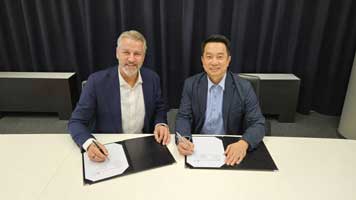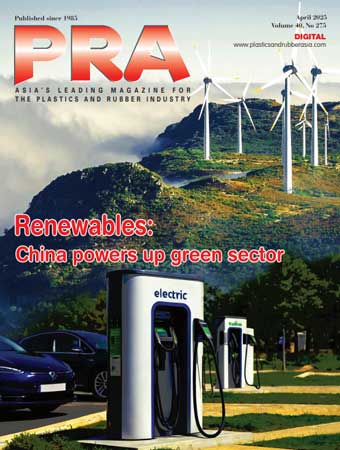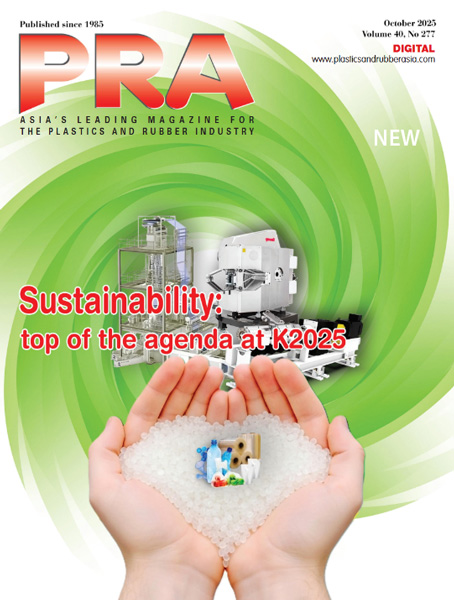Green news: CJ Biomaterials/BIQ Materials to produce artificial turf infill; Continental to reduce CO2 footprint with Ineos PVC

South Korea-based CJ Biomaterials, Inc., a division of CJ CheilJedang, that produces of polyhydroxyalkanoate (PHA) biopolymers, announced that it has signed a partnership with Swedish biomaterials compounding company, BIQ Materials, to expand the commercialisation of its patented artificial turf infill made using Phact PHA.
Infill, commonly used in soccer and sports fields, supports artificial turf and absorbs impact, helping to prevent player injuries. However, in 2023, the European Union (EU) classified petroleum-based infill as intentionally added microplastics under REACH Regulation 1907/2006 noting that current infill materials are a major contributor to persistent microplastics in the environment. The use of petroleum-based polymeric infill and its sale will be banned beginning in 2031. As a result, the two companies anticipate an increased need for infill made from biodegradable materials that meets performance standards in the EU market and have been collaborating to proactively address this demand.
CJ Biomaterials will supply Phact PHA A1000P, a material suitable for artificial turf infill, which BIQ Materials will use to manufacture products. This collaboration between CJ Biomaterials and BIQ Materials is expected to accelerate the commercialisation of PHA.
PHA is a naturally occurring polymer that microorganisms accumulate inside their cells by consuming plant-derived components including sugars. It has the unique property of biodegrading completely in soil and marine environments, as well as in industrial and home composting facilities. Because it leaves behind no persistent microplastics, PHA is increasingly seen as a viable alternative for replacing petroleum-derived plastics.
CJ Biomaterials began commercial production of PHA in 2022.
This most recent partnership also builds on CJ Biomaterials' commitment to accelerating its global PHA business through strategic collaborations. In September, the company signed a business agreement with Cosmax, the cosmetics brand of ODM, to develop Phact PHA-based cosmetics containers. In March, the company partnered with Itochu Plastics, a subsidiary of Japan's Itochu Corporation, to begin exploring the local bioplastics market.
In other news, Germany's Continental says its group sector firm ContiTech will convert the majority of its PVC-based products to Ineos Inovyn's CO2-optimised Neovyn PVC. The material used has a product carbon footprint that is around 37% lower than the European industry average for conventional PVC.

This will be made possible by targeted decarbonisation measures by Ineos Inovyn - in particular through the use of renewable energies such as hydropower, wind energy and solar power, as well as low-carbon hydrogen in production.
In the future, the new PVC formulation will be used in a wide range of Continental products - including food hoses, conveyor belts for mining, and fasteners and seals for the chemical and construction industries. Functional and design-oriented surface solutions in vehicles, ships and buildings around the world are also equipped with the new material as standard.
In addition to rubber, PVC (polyvinyl chloride) is one of the key materials in the portfolio of Continental´s group sector ContiTech.
Against the backdrop of increasing demands on the CO2 balance of products and supply chains, the targeted use of materials with a reduced product carbon footprint is becoming increasingly important.
Christian Dohmen, who is responsible for global Rubber & Chemicals Purchasing at ContiTech added, "This is measurable progress in our strategic use of materials and at the same time an expression of a more sustainable purchasing decision. By switching to the new PVC alone, we will achieve an emission reduction of around 31.5% in the future compared to the previous PVC range in relation to the quantities used in 2024. A clear signal to our customers, who are increasingly relying on more climate-friendly and recyclable products."
(PRA)SUBSCRIBE to Get the Latest Updates from PRA Click Here»











